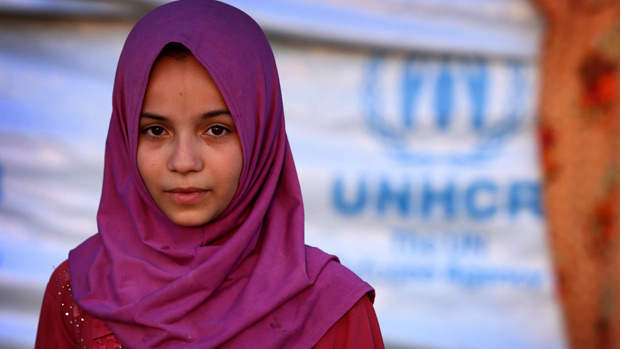Islamic State accused of 'ethnic cleansing on a historic scale'
Rural areas of Iraq turned into 'blood-soaked killing fields' as militants target ethnic minorities in north

A free daily email with the biggest news stories of the day – and the best features from TheWeek.com
You are now subscribed
Your newsletter sign-up was successful
Amnesty International has warned that entire communities are "at risk of being wiped off the map of Iraq" as Islamic State carries out "ethnic cleansing on a historic scale".
The human rights organisation has uncovered new evidence to suggest the militants are "systematically and deliberately" targeting ethnic minorities in northern Iraq, with hundreds, possibly thousands, killed or abducted.
Last month several massacres reportedly took place in Sinjar, where young boys and men were gathered onto pick-up trucks, driven into the desert and killed.
The Week
Escape your echo chamber. Get the facts behind the news, plus analysis from multiple perspectives.

Sign up for The Week's Free Newsletters
From our morning news briefing to a weekly Good News Newsletter, get the best of The Week delivered directly to your inbox.
From our morning news briefing to a weekly Good News Newsletter, get the best of The Week delivered directly to your inbox.
Donatella Rovera, Amnesty International's senior crisis response adviser, says Islamic State is carrying out "despicable crimes and has transformed rural areas of Sinjar into blood-soaked killing fields in its brutal campaign to obliterate all trace of non-Arabs and non-Sunni Muslims".
Hundreds, if not thousands, of Yazidis have been kidnapped from the Sinjar region, many of them women and children. Little is known about their welfare, although those who have managed to contact their families say some women and children have faced rape and sexual abuse. Meanwhile, more than 830,000 others have been forced to flee their homes since the beginning of June.
Mohsen Elias, a Yazidi survivor of a massacre in Qiniyeh, told Amnesty that militants rounded up the male members of his family, including his 12-year-old brother Nusrat. "My brother Nusrat was scared and was crying," he said. "They opened fire from behind us. I fell into the wadi [dry riverbed] and was not injured. My brother Nusrat was right next to me and was killed."
More than 43 of Elias's relatives were killed, including his father and four brothers, while four generations of women in his family were abducted, including his pregnant wife.
A free daily email with the biggest news stories of the day – and the best features from TheWeek.com
Another survivor managed to escape after a Muslim man helped him. He told Amnesty International: "Some could not move and could not save themselves; they lay in agony waiting to die. They died a horrible death."
Yesterday, the UN agreed to send investigators into northern Iraq to examine the crimes committed by Islamic State, reports The Independent. The investigators, who have a budget of $1.18m, will report back by March 2015.